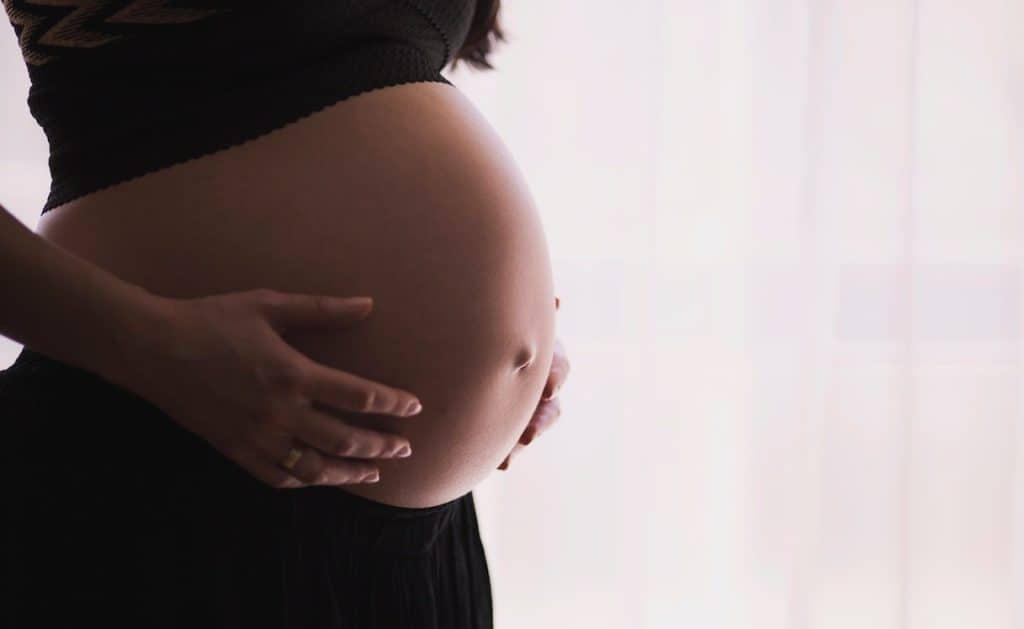While you are pregnant, you are your baby’s entire world. When your baby relies on you for protection and nourishment, it is only natural to want to make sure that you give them everything you possibly can to let them grow strong and healthy.
The question “is my baby hungry when I’m hungry during pregnancy?” is one of the questions expectant parents often ask. The short answer to which is, no – babies do not sense hunger in the womb as they receive a constant supply of nutrients from their mother through the placenta and umbilical cord.
If you happen to be an expectant parent, you’ve probably heard about how special the connection between them and their babies is. This article highlights just one aspect of that special connection – specifically that of nutrition, hunger, and satiation between a mother and baby during pregnancy
Is My Baby Hungry When I’m Hungry During Pregnancy?

Many people become much more conscious of their diet and make efforts to eat healthier when they are having a baby. After all, your food and drink are what become your baby’s nourishment and sustenance while they grow and develop inside of you.
Unlike you and I who eat meals at set times, however, a baby in the womb gets a constant and endless supply of all the nutrients they need through the umbilical cord, a special organ composed of a series of blood vessels that connect a baby to their mother through the placenta.
The constant supply of nutrients through the placenta and umbilical cord makes it impossible for your baby to feel hungry before they are born. Your baby receives nourishment every moment of every day they are in your womb, regardless of whether you are currently eating or not.
How Do Babies Get Food In The Womb?
During the prenatal period, your baby is connected to you through the placenta, an organ that is found only in the uteri of pregnant people. Your baby’s umbilical cord arises from the placenta and serves as their attachment to you, and by extension, the outside world.
The placenta serves your baby in 4 ways: provides them with oxygen- and nutrient-rich blood, moves waste products and deoxygenated blood out of their system, secretes hormones that help them grow, and provides protection by transferring a portion of your antibodies to them.
Food and nutrients are digested and broken down and absorbed into the bloodstream through the walls of the mother’s small intestine. From there, the placenta receives oxygenated, nutrient-rich blood through the uterine artery. The nutrients and oxygen are in turn delivered to your baby by way of the umbilical cord.
An umbilical cord typically has three major blood vessels. One vein serves to carry substances such as oxygen, nutrients, hormones, and antibodies from the placenta to your baby.
Two arteries move deoxygenated blood and waste products such as carbon dioxide back into the mother’s circulation, where the blood is reoxygenated and waste products are eliminated.
This system keeps your baby fed and nourished 24/7, so that they are never hungry, even when you are.
Does My Baby Sense When I’m Hungry During Pregnancy?

Even though babies in the womb do not feel hunger the same way we do, there is some evidence for the idea that unborn babies can sense when their mother is hungry.
Some studies have shown that fetal movement increases before and during mealtimes, in response to a decrease in both the mother’s and baby’s blood sugar levels. It is suggested that this increase in fetal movement constitutes a baby’s demand for food and directs their mother to eat.
How Much Do You Need To Eat During Pregnancy?
Contrary to popular belief, there is no need to “eat for two” while you are pregnant. You and your baby have different energy and nutrition requirements that are not necessarily satisfied simply by eating larger portions.
Calorie and nutrient requirements change throughout pregnancy and are different for everyone who gets pregnant. Even though your baby does not yet feel hungry, your energy requirements do increase as your body works to sustain both of you.
The following contains a brief guideline on increasing calorie consumption during pregnancy. Please note that these values are provided assuming a singleton pregnancy and a normal pre-pregnancy weight and may differ if you are over- or under-weight and if you are carrying more than 1 baby.
In the first trimester, you do not need any extra calories above what works for you at your body weight and activity level. For now, focus on meeting your macro- and micro-nutrient needs, staying adequately hydrated, and taking your prenatal vitamins.
In the second trimester, an additional 300-340 calories should be adequate. This addition may translate to an additional snack of a serving of toast and 2 tablespoons of nut butter or dinner with a 4-ounce serving of salmon.
In the third trimester, you may need up to an additional 450 calories. An addition of 1 or 2 healthy snacks such as a cup of whole milk yogurt plus an additional 2 servings of fruit will meet this requirement well enough.
A well-balanced diet is important for both you and your baby’s health and well-being. The amount of food and drink you need to consume depends on your fitness and activity level, current body weight, and nutritional goals. A well-balanced diet is important for both you and your baby’s health and well-being. The amount of food and drink you need to consume depends on your fitness and activity level, current body weight, and nutritional goals.
More important than hitting a caloric requirement is to make sure that you are consuming healthy, nutritious foods that will keep you healthy and support your baby’s development.
Eating a wide variety of food groups will help ensure that you are receiving all the vitamins, minerals, proteins, carbohydrates, and fats that you and your baby need.
Your healthcare provider should be able to properly advise you on nourishing your body during pregnancy as well as during postpartum. Proper nutrition is important at every stage of life but is even more so during the pre-natal period, where growth and development are faster and greater than at any other point in a person’s life.
Final Thoughts
While you might experience an increased appetite and random cravings during your pregnancy, your unborn child does not. Regardless of whether the mother is eating or not, the umbilical cord provides a steady flow of nutrition to the baby. However, it’s essential to adopt healthy eating habits and consume nutrient-rich food to ensure the proper growth and development of your baby.
